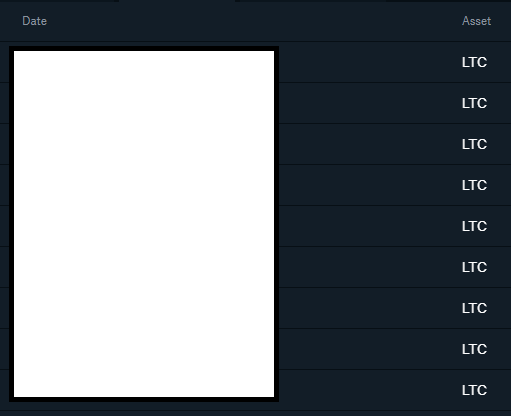Bigger blocks won't solve this
So, the other day, I tried to move coins around in preparation for the end of this crypto cycle. As I was moving my LTC from the cold storage (Ledger), I got this notification:

At first, I was a bit confused. There was no way my holdings would constitute as a "large amount" of coins. After all, I was only transferring a part of it to places like Coinbase, et al. Ignoring the warning, I proceeded to send my coins. And then, the transaction failed because it took too long to verify.

From Ledger's own support website, this was a limitation of the device. I had accumulated too many UTXOs over the course of the years.
How? I was foolish enough to use my Ledger as the receiving wallet for all the faucets I used to take part of back in the days. In essence, there were tons of 0.001 LTC transactions into that particular account.
Why does this matter? Some of us may have read about it through our crypto journeys. Here's a helpful article about what a UTXO is and how a blockchain using that model processes transactions. This almost feels like an instance at school when you ask yourself when would you ever need that info. Well, in this case, it's how I came to understand the issue at hand.
In short, I was doing the crypto version of pulling up at the bank with jars of pennies. There were so many UTXOs accumulated in my wallet thanks to the microtransactions. The Ledger device was not capable of counting them all. Even if the hardware wallet had more processing power, at some point, the limit might be due to block size. There were that many tiny transactions.
How to remedy
As suggested on Ledger support website, I had to send smaller transactions. I started off with 1 LTC. Then, 2, and 3, and so on. I repeated this until I was able to send the total amount of coins to the exchange. This winded up looking something like this on Coinbase.

That was quite the learning experience. Note that the issue I encountered here is on the hard wallet's end. This has nothing to do with the capability of UTXO-based crypto assets.
For future reference, if you ever encounter such issue, don't panic. Start sending a little bit at a time. When it comes to safe practice, you should be sending a small amount of crypto to an address before going all in.
Posted with STEMGeeks
That is quite interesting and I never knew this could be an issue. Do you think future hard wallets might upgrade their code or hardware to solve this issue?
Posted Using LeoFinance Beta
In this case, it might be hardware more so than software.
I'm sure we'll see higher-powered devices in the future. At the same time, a cold storage is never meant for that sort of transactions like I listed. Part of the security is that they don't have the capacity to do anything overly complicated.
Oh wow what other faucets do you know that are good to use? I'm interested.
I did quite a bit back in 2018-19. Stuff like Coinpot and Moon Bitcoin, etc.
Then, I stopped because they are shady and what they are doing is generally bad for your computer.
Yeah that's what I want to try to avoid and often faucets don't provide much but over time might be worth it.
The only one that remotely meant anything was the Doge faucet from Coinpot, but that's 1 in a million.
But that place was shady as hell.
and you forgot the part where you almost kick a hole in the everything, right?
Nah, it was early in the morning. Too tired to do that.
Good for you. Glad you got it all out.
I have not received this message before, means they want you to send it but by bit by bit.
Posted Using LeoFinance Beta
Nah, just a general warning about you having too many UTXOs in your wallet.
Ok oooo
Posted Using LeoFinance Beta
I don't get it.
You accumulated a lot of UTXOs for faucet payments and that prevents you from transferring, ok. But the solution to transfer your money is to make more transactions? Wouldn't it be more practical to make one big transaction and that's it? why it works that way?
When you make a transaction, the UTXO is “spent”.